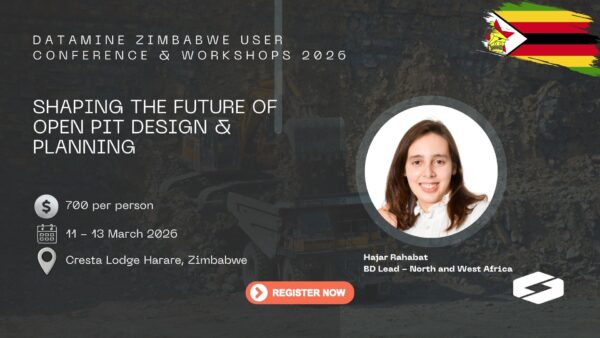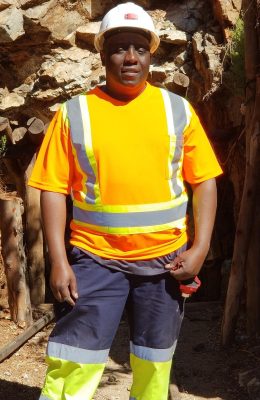The Stotle: Inside Mining Zimbabwe interviewer Rudairo Dickson (RD) met Martin Chitohwa (MC) a veteran in Chrome mining in Zimbabwe who is also a member of Zimbabwe Miners Federation (ZMF) and Miners Marketing Corporation Zimbabwe (MMCZ) chrome committee. To discuss on his journey as a chrome miners and what need to be done to restore Chrome mining to its former exaltation.
RD: Hello Martin! Welcome to The Stotle: Inside Mining Zimbabwe. Can you please introduce yourself, who you are, where you are coming from and what you want to achieve in the Mining industry?
MC: Hi how are you Rudairo? My name is Martin Chitohwa, I am currently a member of ZMF and MMCZ Chrome Committee. I am also a chrome miner and have been in chrome mining since 2006 when I joined my brother from overseas to embark on fruitful journey of tribute mining for Zimasco, Mutorashanga division. We were one of the largest producers in the north dyke producing an average of 3,500 tons a month from upwards of 5 mechanised shafts and adit mining. I will never forget my first time in a Zimbabwean shaft, it was very different from what i had experienced overseas in ultra-deep shafts which were high tech. I fell in love with chrome mining from there and then.
My brother pushed me to learn more about chrome mining from day one and i am now a Mine Blasting License (MBL) holder hoping to achieve my Full Blasting License (FBL) in the not so distance future. I joined my brother as the Finance and Admin Director then went on to be the Operations Director after a couple of years. I then branched off to start my own tribute with ZimAlloys in Mutorashanga as well were i run both operations concurrently. My passion for chrome mining grew fonder and managed to learn a lot through the years.
I have witnessed all the ups and downs in the industry, recession, Zimasco and ZimAlloys hard times after the recession. The best year of chrome mining was before the world recession when Zimasco was fully
supportive of its Tributors. All they wanted from us was the product (chrome ore). Everything from technical work, equipment to mechanise our shafts, all the other supplies were easily accessible. Zimasco used to buy us vehicles to
further enhance our operations. All the necessities were made available on time which rendered them (Zimasco)
dependable as an organisation.
Everything changed after the recession and Zimasco was never the same again. I have been a Tributor for Zimasco all these years and have been witnessing challenges in terms of doing business adding up. I dont see the chrome sector getting back to where it was before.
Since 2016 I have sunk more than US$60,000 of my own money trying to resuscitate shafts and develop new ones on Zimasco’s claims but all to no benefit. You might say why? Well, Zimasco stopped supporting our operations after the recession and it has been our responsibility as tributors to equip your own operation, Zimasco only providing explosives, fuel and few other necessities. My passion for the chrome sector saw me contributing to the uplift of the chrome ban in 2015 when i worked closely with Engineer Peter Mutsinya and his team for cause. Before and after the ban was lifted, I, with the backing of foreign investors have tried to engage Zimalloys and Zimasco to mine concentrates but all was to no fruition, they would rather engage chinese than their local tributor who has been with them since 2006. Up to now I am still troubled by that.
I would be glad to see a great change in how smelters (Zimasco, ZimAlloys, Afrochine) would enroll a new strategy as to how they can work with contractors (Tributors) in a win, win scenario. As it is we are struggling to make ends meet and even operate as semi mechanized tributors. Price at which they buy our chrome is not viable. Now Zimasco pays US$13/ton and $50/ton.
I believe our ministry can do something to save us. If tributors for smelters get back to commendable production, more and more chrome ore will not leave Zimbabwe as raw since smelters will be fired up which in turn mean more forex for the country.
I was once employed by Meikles when they tried to venture into mining in 2013-2015 as their Operations Manager with the aim to support personal chrome claim holders along the dyke so that they would mine under our guidance and sale the product to us. As a team we had come up with a plan that would actually help a lot of locals to make a living out of their chrome claims. I can go on and on Rudairo, I am just an unhappy chrome miner who is seeing his passion and knowledge of the industry not being utilized. There is a lot of doors that can be opened in this sector and we can see it flourishing.
RD: Can you please tell us how you feel to be the first person interviewed on The Stotle: Inside Mining Zimbabwe.
MC: Ecstatic, you know the feeling when you have been holding on to something for long and you have been waiting for the right time to express it? I forsee this
platform helping us and future chrome miners getting their grievances heard. It has been long time coming. We tributors and personal claim holders really need help and I can be of much assistance to that effect in terms of strategy. Let see how it pans out from here on.
RD: Inside Mining Zimbabwe would want to call you one of the pioneers of chrome mining in Zimbabwe considering the situation back then, can you highlight the challenges you encounter as a beginner in the industry?
MC: Back then challenges were much less as i stated previously. The only
challenge was to get your foot in the door but whilst you enter, all was much easier. Thats one of the reasons why my interests were escalated in the industry. More and more challenges are coming out now and it seems our government never availed funds they said were allocated to support local chrome miners back in 2015 when the ban was uplifted. I know gold is a strategic mineral so is chrome. Why is it that there is little to no support for local chrome producers? Smelters will continue to reign and us, we continue to suffer.
RD: How did you overcame those challenges?
MC: Fun enough, back in the day Zimasco used to assist independent claim holders with technical help, equipment and explosives. So, challenges we need to overcome are today’s challenges and the question is how if access to
funding is a tall order.
RD: Can you safely say you overcame all the challenges faced by beginners in chrome mining in Zimbabwe?
MC: Like i said earlier, challenges we minimal back then, all you were required to have is the capability to mine.
Beginners of recent times are the ones who have quite a mountain to climb. We have tried to form associations to help the cause but all was in vain. From time to time we try to seek assistance from ZMF to liaise with the smelters but it never works.
RD: Are the challenges you faced back then still affecting Chrome miners?
MC: I think a lot of people who are trying to get into this sector they have no clue of what the industry was like back then so they have nothing to compare with. It will never work for most for them unless there is some awareness campaign of some sort. What we need is to address current challenges and we work a way forward. We seasoned miners we then help with our experiences to bring about a workable solution.
RD: How can these challenges be curbed for our future mining generation?
MC: Next generation has to embrace and prepare themselves for the challenges they will now and in the future. Without capitalization of the sector I do not see light at the end of the tunnel. This product needs to mined and beneficiated locally. That way, local smelters will be forced to buy ores and competitive prices.
RD: For today we can end it here, thank you Martin for this wonderful insight.
MC: Thank you for the platform Rudairo.





